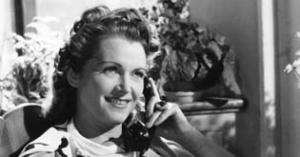Gallery
All Pictures (20)Biography
Olga Tschechowa was born as Olga von Knipper in Aleksandropol on April 26th 1897. Her father, who was of German descent, was a renowned engineer who later become the minister for transportation under Czar Nikolaus. Her musically gifted mother had Irish-Austrian heritage, while her aunt Olga Knipper–Čechova was a celebrated actress, who was married to famous writer Anton Čechov – who also happened to be young Olga's doctor – and had great influence on the young girl. She was mainly raised in Moscow and St. Petersburg, and her family's close relation to the Russian court and the ties to artists like Tolstoj and Čajkovskij were crucial for her upbringing.
After dabbling in sculpting, she started taking acting lessons at the famous school of Konstantin Stanislavskij, resulting in her first small theatre engagements. In 1914, she married Anton Čechov's nephew Michail Čechov. The couple separated three years later, and their daughter Ada would later also become an actress.
During WWI and the October Revolution, Olga Tschechowa supported herself and her child by taking work of all kinds, while appearing in small roles in Russian feature films. In 1920, she re-located to Berlin, and first had to struggle to find any engagements as an actress. Her German screen debut in "Hochstapler" was widely ignored, but after Friedrich Wilhelm Murnau's "Schloss Vogelöd" and the Ibsen adaptation "Nora", audiences and critics started to notice her.
Her breakthrough came with "Die Stadt der Versuchung", which established her lasting image of the cosmopolitan, alluring Grande Dame. Her own attempts at founding a production company in Germany failed at first, instead, she played in France under the direction of René Clair, worked on the British production of E. A. Dupont's "Moulin Rouge" and broadened her repertoire with the convincing portrayal of a mother in "Marter der Liebe". She co-porduced several films, and even made her debut as a director with "Der Narr seiner Liebe".
In 1930, Olga Tschechowa was naturalized as a German citizen. Her first sound films included the box-office success "Die Drei von der Tankstelle", the German-language version of Hitchcock's "Murder" and the spy caper "Ein gewisser Herr Gran".
After the end WWII, Tschechowa had to dispel wild rumours of her being a Russian spy, a double agent or even Hitler's lover. The German post-war cinema didn't have many roles for her, and apart from a few appearances – including the popular "Immenhof" films – and occasional theatre work, Olga Tschechowa resigned from acting at the end of the 1950s. Her second, successful career began in 1958 with the founding of her own cosmetics company, which included branches in Berlin, Munich and Milan.
On March 9 1980, Olga Tschechowa passed away in her apartment in München-Obermenzing.
